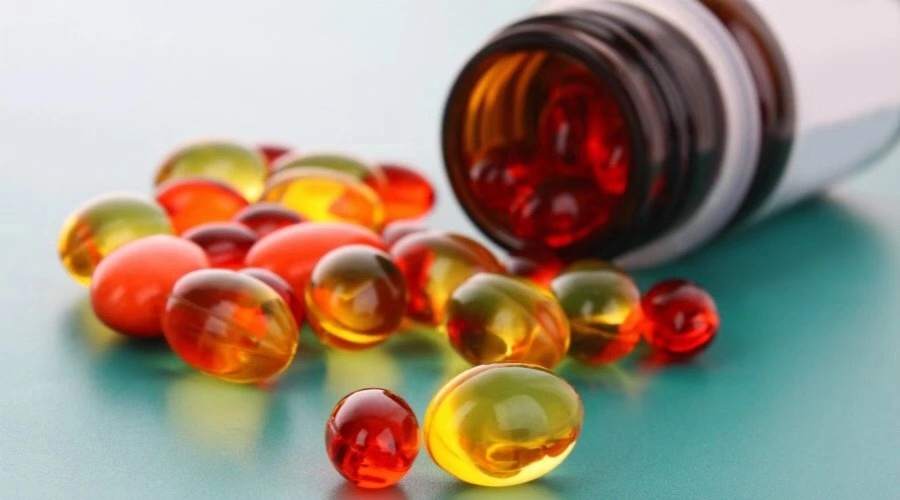In the eyes of many mothers, [immunity] is a talisman for the baby’s health. When the baby suffers from physical discomfort, such as colds, coughs, diarrhea, etc., mothers will worry: Is my baby’s immunity a little poor?
In fact, the so-called “poor immunity” is a characteristic of Chinese child-rearing. If the mother cannot find the cause of the baby’s physical discomfort, it will be attributed to “poor immunity”.
Many mothers often [rush to the doctor for urgent illness] when they encounter their babies’ physical discomfort. When they hear that what nutrition can improve their babies’ immunity, they buy what nutrition. It is easy to feed the wrong nutrition at this time!
In fact, if the baby can eat a balanced diet and supplement some nutrients, it can basically improve immunity. Other nutrients can supplement the nutrition the baby needs, but they cannot improve immunity.
These three kinds of popular products really cannot enhance immunity.
Protein powder
Protein powder is mainly used to supplement protein for babies and has no effect on improving immunity.
In fact, as long as the baby has a balanced diet every day, ensures 600 mL ~ 800 mL of milk and ensures the intake of meat, poultry, fish and eggs, it is relatively easy to reach the recommended protein intake.
Probiotics
Probiotics are a net red nutrition, but there is no obvious evidence to prove that they can improve baby’s immunity.
When the baby has the following two situations, the mother needs to supplement the baby with the doctor’s advice:
According to < < European Guidelines for the Treatment of Acute Gastroenteritis in Children > >, eating probiotics can relieve symptoms during the period of acute diarrhea in babies.
After the baby takes antibiotics, the mother can use probiotics to adjust his intestinal flora and restore the balance of flora.

Bovine colostrum
Bovine colostrum is the precious food for baby cattle, and mother’s colostrum is the most precious food for baby cattle.
Moreover, the immune protein in bovine colostrum is not the same as that in breast milk, and the nutrition ratio is not completely suitable for babies, which does not have the effect of [enhancing immunity].
From September 1, 2012, the State Health and Planning Commission banned manufacturers from adding bovine colostrum and dairy products made from bovine colostrum to infant formula foods.
Improving the baby’s immunity is a systematic project, but it is not enough to supplement a certain nutrition blindly. Mom should also pay attention to:
· Adherence to breastfeeding until the age of 1
· Balanced diet and reasonable dietary mix
· Be vaccinated on time and do not abuse antibiotics
· Proper exercise and adequate sleep
Mother should buy these nutriments.
1. Buy vitamin D, the money is worth it.
Vitamin D is especially important for the growth and development of the baby. It can promote the absorption of calcium in the baby’s body and contribute to bone health. Lack of vitamin D affects the growth and development of children and even leads to rickets.
Generally speaking, it is difficult to supplement vitamin D by eating supplements and basking in the sun, so supplements must be taken.
It is suggested that vitamin D 400IU should be supplemented 2 weeks after the baby is born, preferably until the baby is old.
2. DHA and iron, calculate before buying
DHA
DHA plays a key role in the normal development of brain, retina and other nerve tissues. It is recommended that infants under 3 years old take 100 mg per day.
For breast-fed babies, when the mother eats DHA, the baby can supplement it.
For babies fed with milk powder, DHA is supplemented according to the milk quantity.
For babies who add supplementary foods, they must eat eggs and seafood to ensure sufficient milk to ensure DHA intake.
However, the baby’s diet will not follow the mother’s plan completely, which may lead to insufficient DHA intake, and then the baby can choose to supplement DHA.

Iron element
Iron is especially important to the growth and development of infants. Long-term insufficient iron intake will even cause the growth and development of infants to stagnate and affect their intellectual development.
Iron deficiency and iron deficiency anemia are especially common nutritional deficiencies among infants in China.
The baby will bring nearly 300 mg of iron from the mother’s body. Near 6 months, this part of the iron in the body will be consumed almost the same, so it is necessary to start getting iron from food.
This is also why the baby’s first supplementary food is iron-containing paste, such as high-iron baby rice flour, red meat paste, etc. In addition, it is necessary to enrich the ingredients as soon as possible to ensure that there are pork or beef in the supplementary food every day, 50 g of pork or beef every day, and no more than 50 g of animal viscera every week.
If the baby does not like red meat or is screened for anemia, iron supplements are needed to supplement the iron needed by the body and increase the iron reserves in the body.

Three Suggestions on Choosing Supplements to Make Mom More Reliable to Buy
1. It is recommended that the baby take a single nutrient supplement.
The choice of nutritional supplements is not large and complete, the most important thing is to suit the current situation of the baby. Therefore, priority should be given to single nutrient supplements, which will achieve higher supplement efficiency.
Step 2 Pay Attention to Dosage
As the old saying goes [too much is better than too much], the same tonic for the baby must be within a safe range.
There are many nutrients in milk powder and finished supplementary foods. It is suggested that mothers count the nutrient content before eating it for their babies and consider whether to supplement it extra.
Moreover, when taking nutritional supplements, it is necessary to avoid the superposition of the same type of supplements so as not to cause excess.
Step 3 Pay Attention to Dosage Form
The simple classification of dosage forms of children’s nutritional supplements can be divided into liquid form and solid form.
Common liquid supplements include bottled drops, soft capsules, etc. Different products are suitable for babies of different ages.
Common solid supplements include chewable tablets and soft sweets, which are suitable for babies over 2 years old if eaten directly. However, this kind of nutritional supplement contains sugar, and it is recommended that babies rinse their mouth in time after taking it to avoid dental caries.

